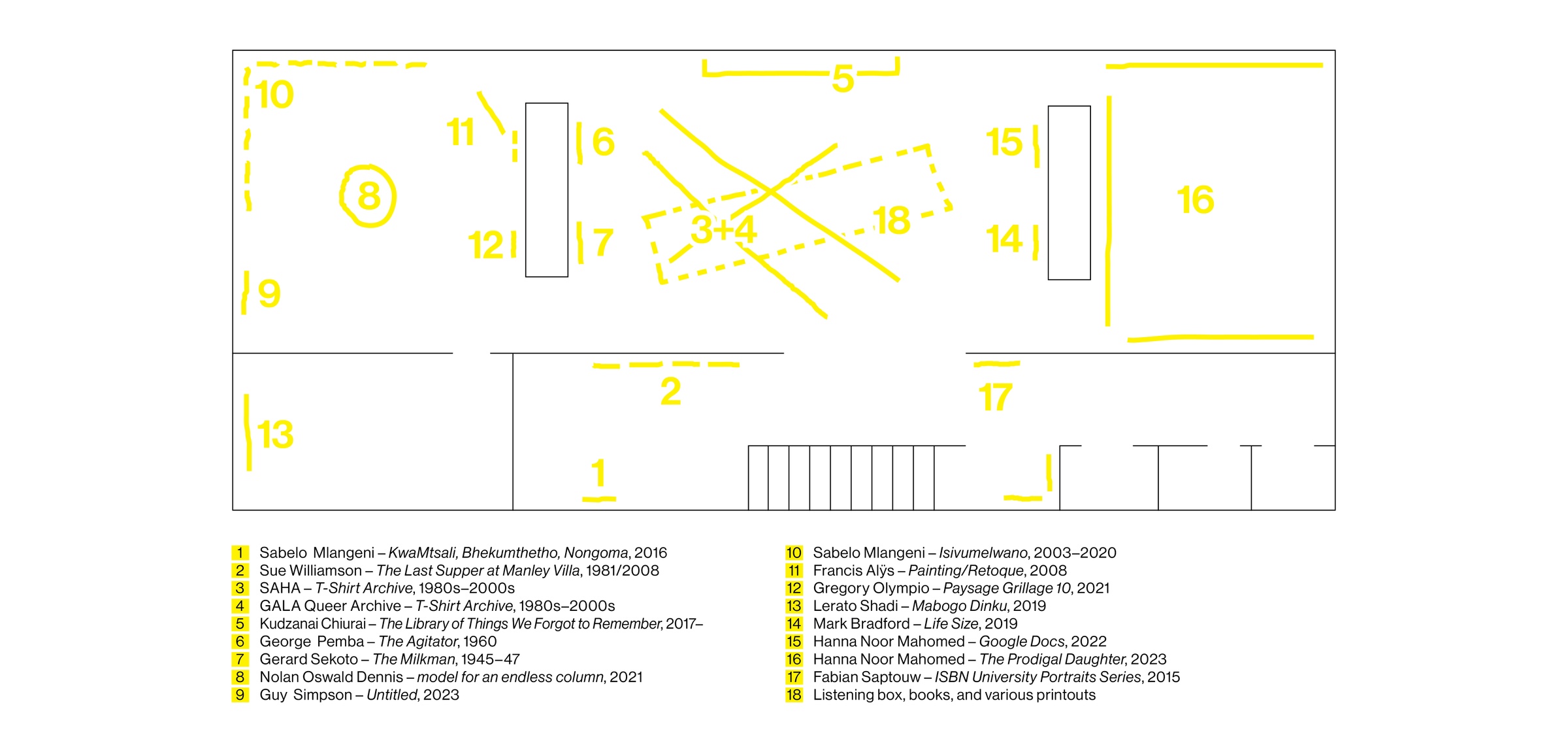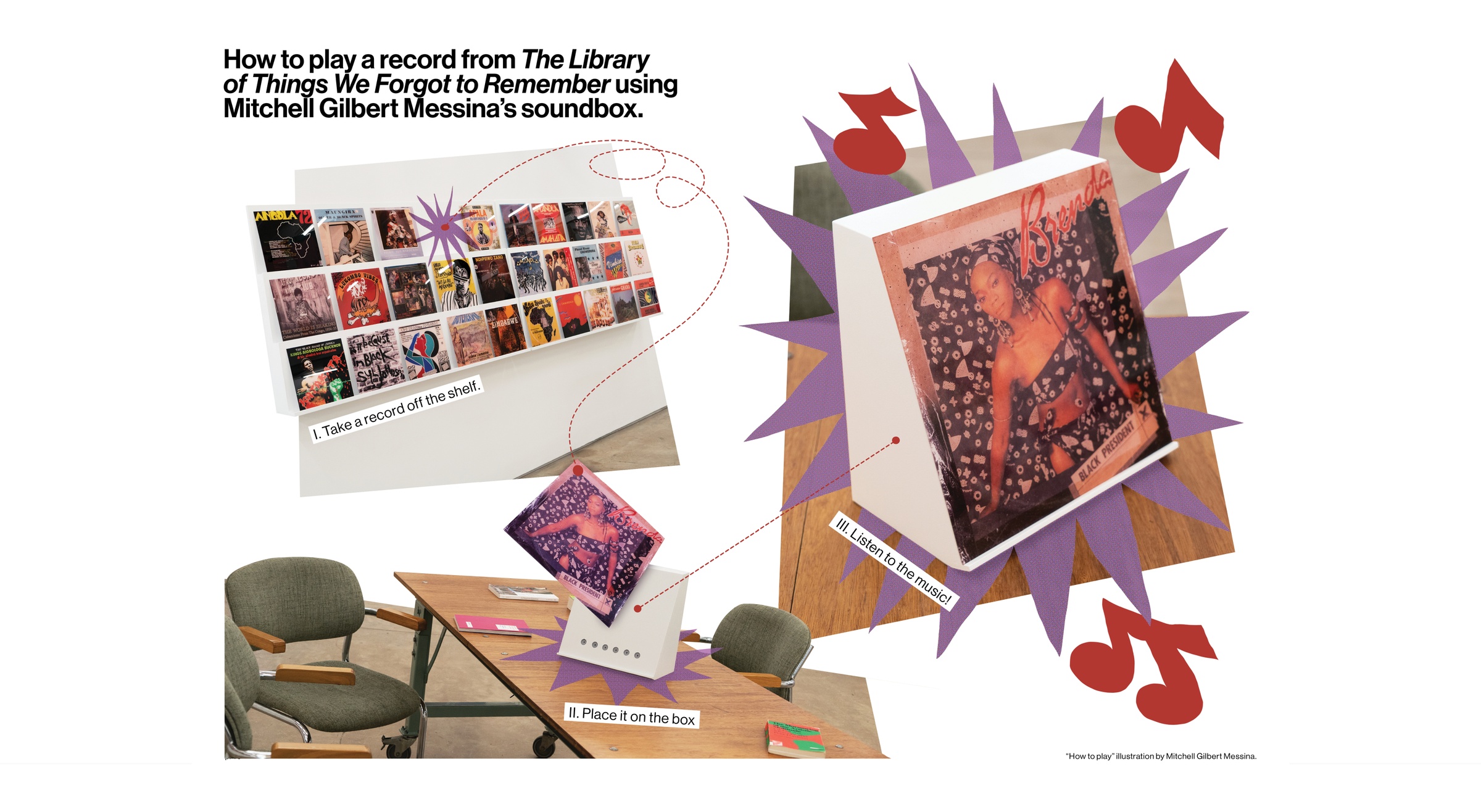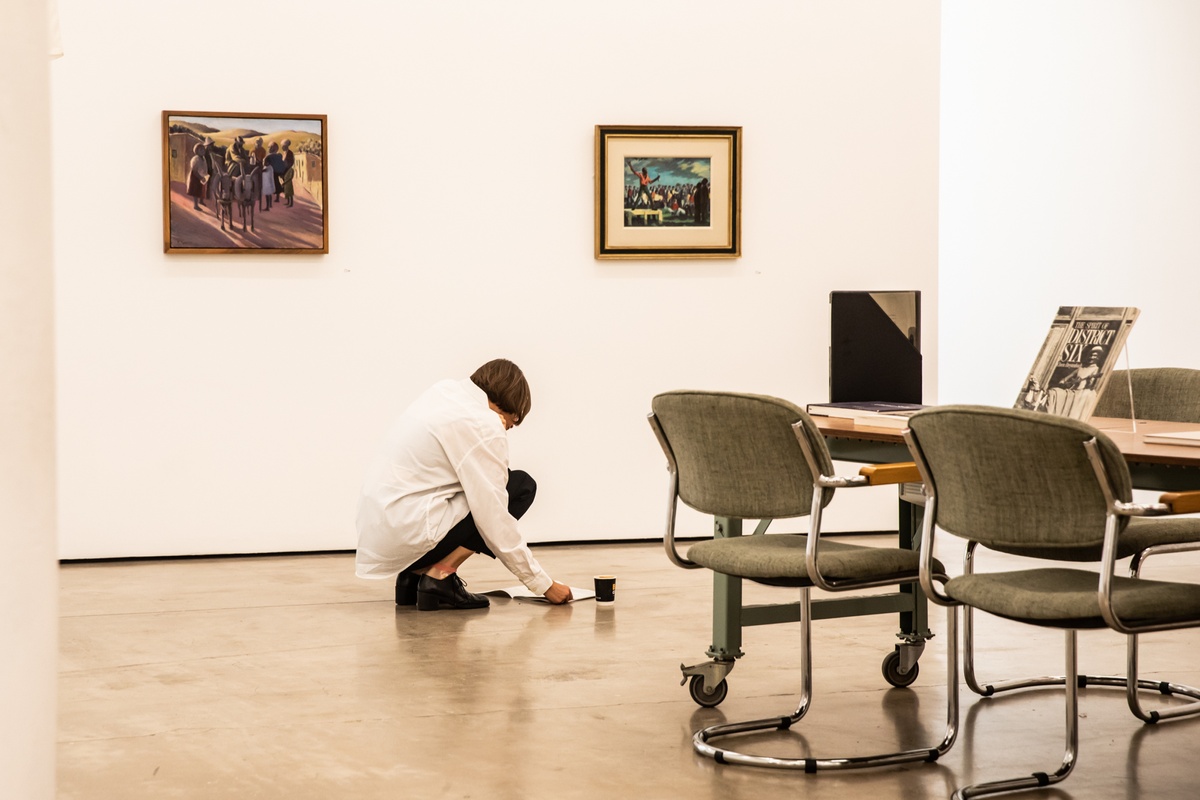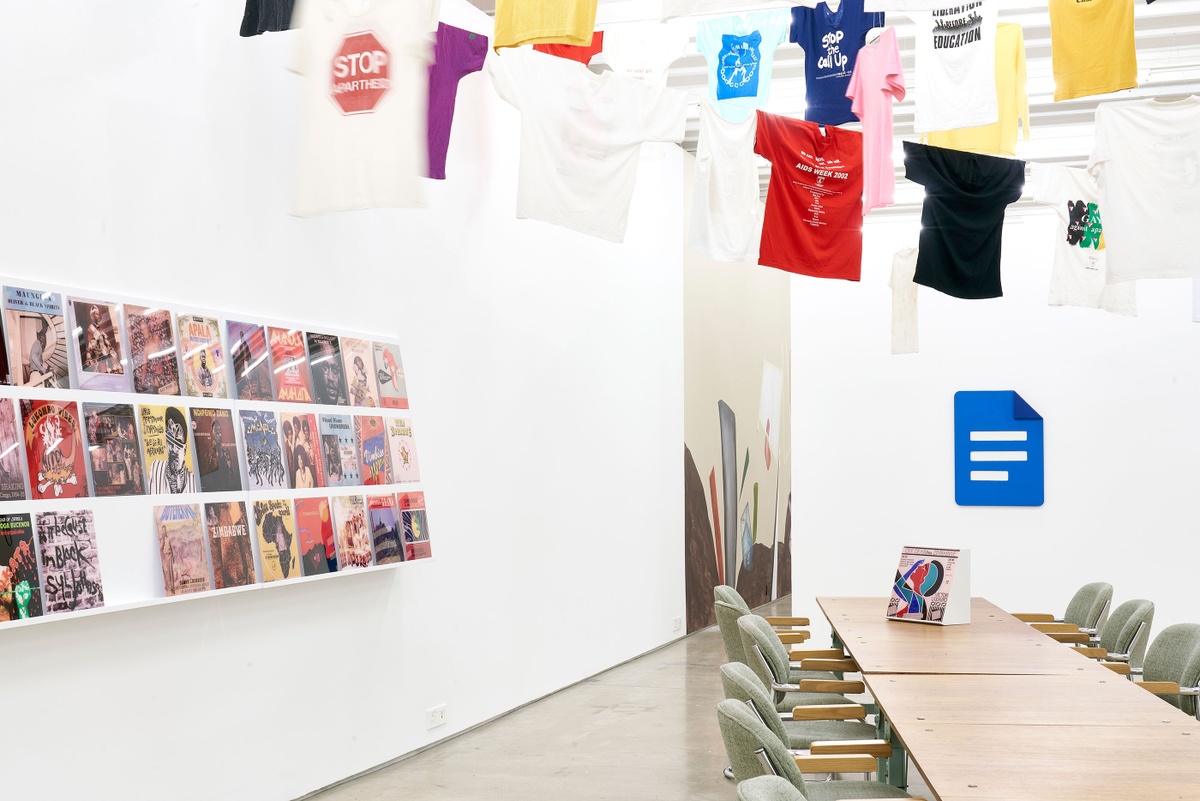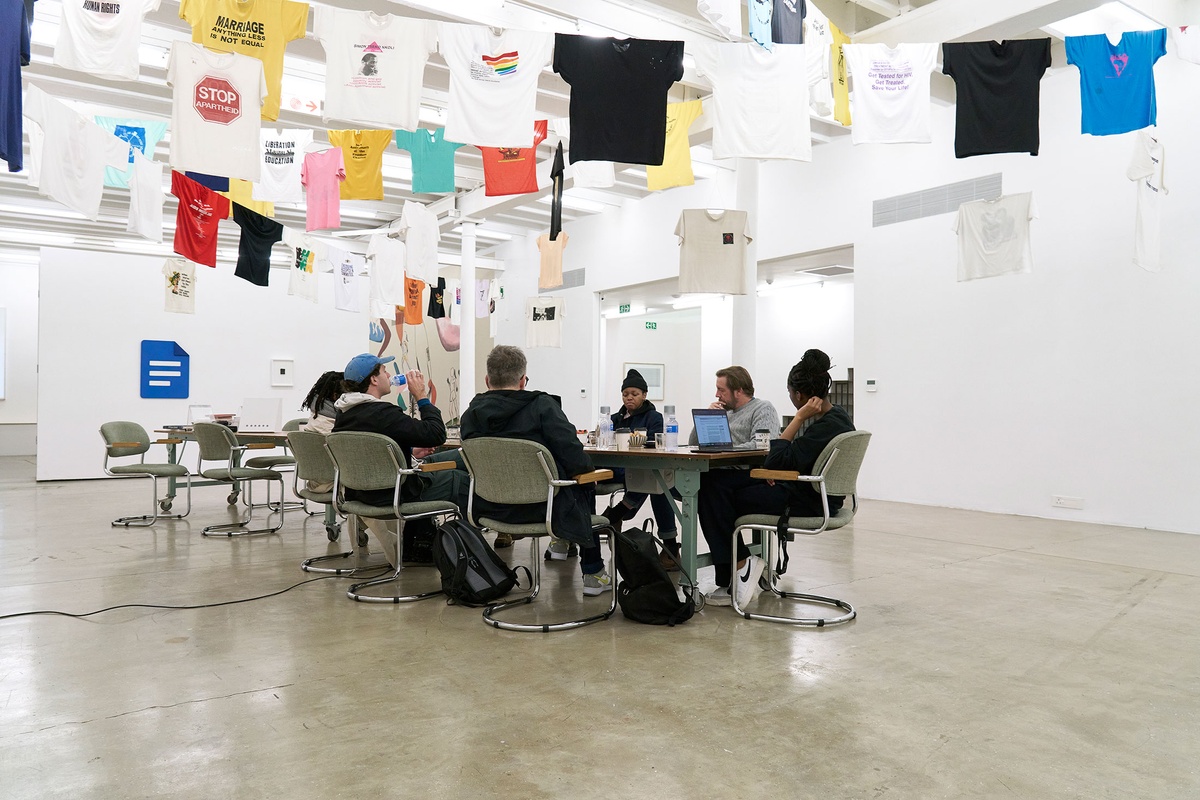
Artists:
Francis Alÿs
Mark Bradford
Nolan Oswald Dennis
Sabelo Mlangeni
Hanna Noor Mahomed
Gregory Olympio
George Pemba
Fabian Saptouw
Gerard Sekoto
Lerato Shadi
Guy Simpson
Sue Williamson
Archives:
GALA Queer Archive
South African History Archive
The Library of Things We Forgot to Remember
Common explores new and longstanding models of self-governance and collective action. It takes its title from ‘The Commons’, a term which signifies any resource shared and regulated by a community. Such commons are as localised as a family refrigerator, a house party, and protest groups – and as expansive as liberation movements, the art world, and online information sharing.
The works exhibited unpack and magnify the experiences and mechanisms of collective action. Together, they offer prompts for considering how we perceive ourselves within these structures, and ask how we can better prioritise trust, reciprocity, and sociability
– curated by Khanya Mashabela.
In their review of Common for e-flux, Keely Shinners writes:
“In the face of this violent world, what forms of sociality and solidarity can be fostered? In the main exhibition space, Mashabela has staged a library, complete with the books that informed her curation as well as a selection of records from Kudzanai Chiurai’s Library of Things We Forgot To Remember (2017–ongoing). This library of diasporic sounds and texts, which Mashabela refers to as a “knowledge commons,” is something of an antidote to the commercialization of everyday life. Countering this, Fabian Saptouw’s ISBN University Portraits Series (2015) remarks that the library is also a site of bureaucracy, where knowledge goes to be cataloged and archived, to become data and, in this way, to die. Hanna Noor Mahomed’s painting of the Google Docs icon performs a similar function by suggesting the thin line between knowledge circulated and data mined. What we think of as the commons, especially with regards to the digital, is in fact mired in the mud of the marketplace and its ever-present systems of surveillance.”
– Keely Shinners, e-flux Criticism (2023)
Ben Johnson
Writers:
Lucienne Bestall
Sara de Beer
Lily van Rensburg
with an introduction by Khanya Mashabela
Editor:
Sara de Beer

